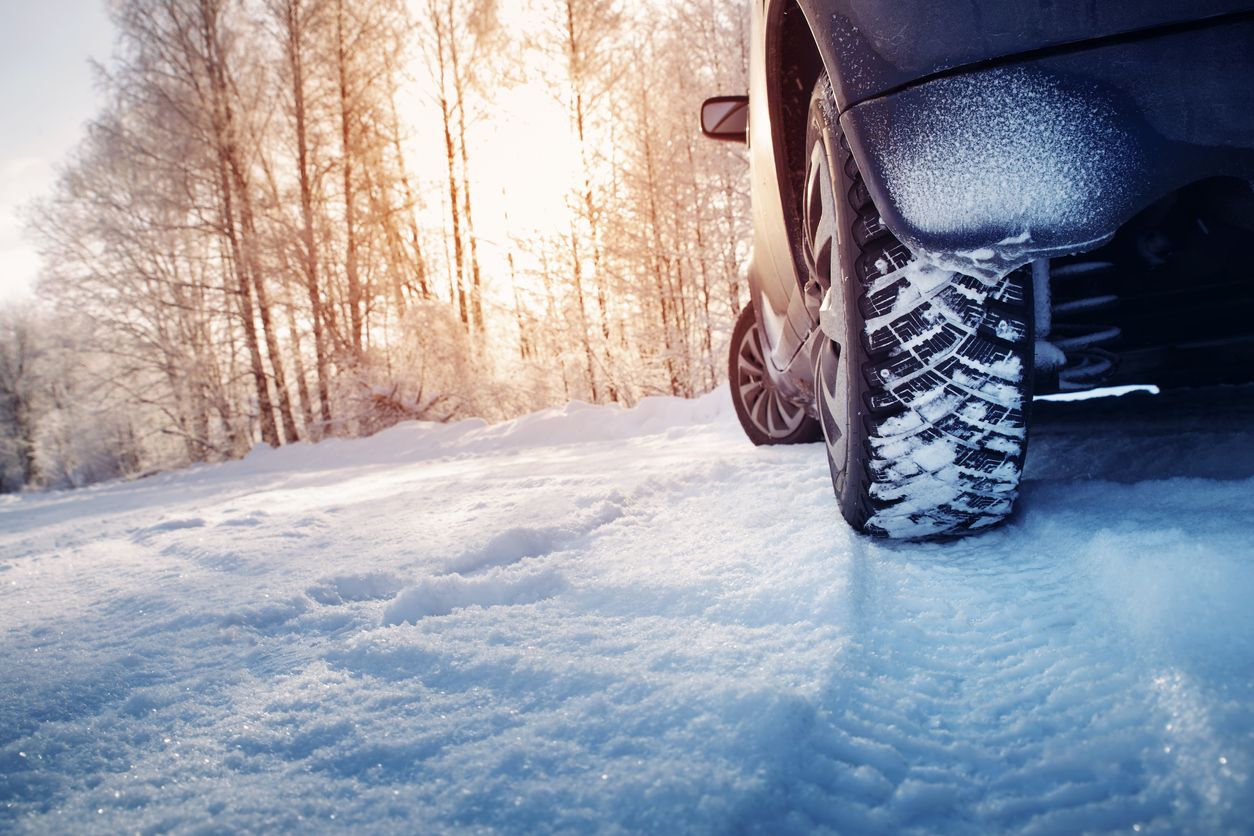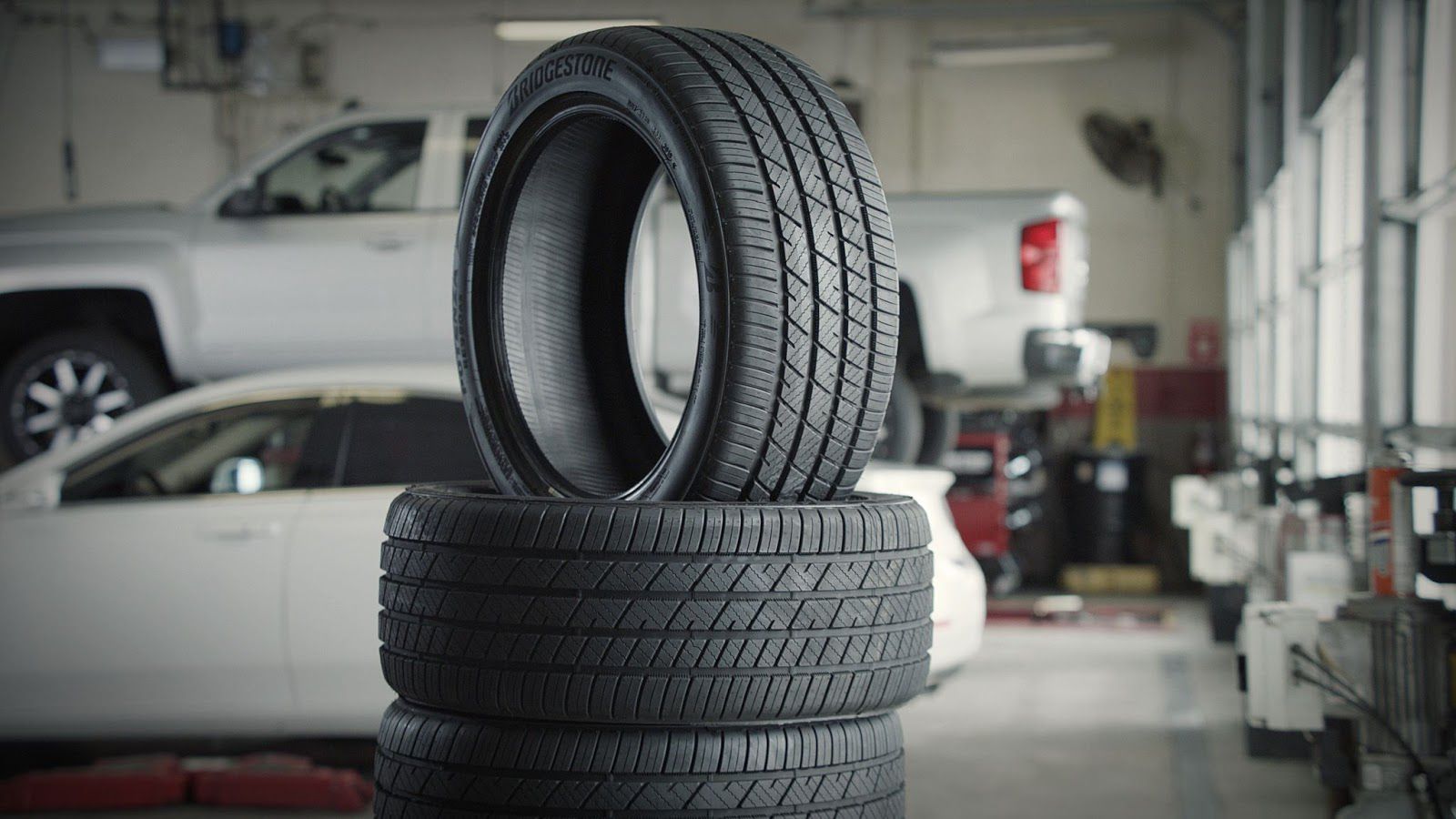In addition to performing well in various conditions, all-season tires often offer a quiet ride and reliable tread wear. They’re a durable option and a popular choice for many vehicle owners. In fact, most vehicles leave the factory equipped with all-season tires.
It’s likely you have them installed on your vehicle — but as the seasons start to shift, you may be asking yourself, “can I drive with all-season tires in winter?” Well, that depends upon where you live and your winter driving conditions. Here are the key differences between all-season tires and winter tires and how to determine which option is best for you.
Key Differences Between an All-Season and Winter Tire
All-season tires combine and balance the benefits of a summer tire and a winter tire — but to ensure the tire performs well in most conditions, some compromises may be made. For example, all-season tires don’t typically provide quite the grip and handling performance of summer tires, nor do they provide the snow and ice traction of a winter tire.
While they perform better in lighter winter conditions than a summer tire, all-season tires shouldn’t be confused with winter tires. So, what are the key differences between an all-season tire and a winter tire?
Tire Tread Patterning and Features
Tread compound and pattern are some of the most critical differences between all-season tires and winter tires. Compared to all-season tires in snowy conditions, winter tires provide extra grip in snowy, slushy, wet, or icy conditions. Unlike an all-season tire, the unique patterning found on a winter tire will help prevent snow build-up and, in turn, improve traction.
Plus, winter tires have more biting edges and sipes — which are tiny slits in the tread. Sipes help to improve traction because they allow your tire to open up to take in water and snow, which removes it from your driving surface. Therefore, winter tires are better for driving in slicker conditions, like on an icy road.
Tire Tread Compound
Additionally, the tread compounds between winter and all-season tires differ. All-season tire rubber compounds are created to withstand both high temperatures and low temperatures. On the other hand, the rubber compounds used to make winter tire treads are formulated specifically for cooler temperatures. This allows winter tire treads to remain soft and flexible even in freezing weather.
Unlike winter tires, an all-season tire tread can potentially stiffen in extremely cold weather, which in turn reduces your traction. Therefore, winter tires are better for freezing conditions or areas where the average daily winter temperature dips below 45 degrees.
Determine if Driving with All-Season Tires in Winter is Right For You
When deciding if all-season tires or winter tires are right for you, consider where, when, and how you drive in the winter. From examining your region’s average winter weather conditions to taking a closer look at your personal winter weather driving habits, here’s what you need to know when deciding if you should drive with all-season tires in the winter.
Examine Your Region’s Weather Conditions
While all-season tires are sufficient in light snow and cooler temperatures, they may not be your best bet for tackling months on end of freezing temperatures, sheets of ice, or inches of packed snow.
The most important consideration for winter driving is traction. Your ability to accelerate, brake, corner, and keep your vehicle under control depends on the amount of traction your tires have with the road. Winter tires will be your best bet if you frequently drive in slick conditions or winter temperatures that dip below 45 degrees because they are created with soft, traction-enhancing rubber.
However, if you’re not experiencing heavy snowfall or freezing temps, you may be wondering what all-season tires are best for winter driving? We’d suggest opting for something with enhanced traction. Popular options include the Firestone WeatherGrip, Firestone Destination LE3, or Bridgestone DriveGuard — depending on your vehicle type.
Examine Your Daily Driving Routes and Habits
Your typical winter road conditions can also influence whether or not all-season tires will be adequate for your vehicle. Think about your typical winter drive: Do you often drive on well-plowed and salted avenues in suburban areas? Or, are you typically heading out onto snow and ice-packed roads?
If you’re often driving on well-traveled and treated roads, an all-season tire is likely sufficient to get you through the winter — provided your tires are regularly maintained and in good condition. Sticking with a regular tire maintenance schedule can help extend the lifetime of your tires and keep them in proper condition for miles to come. Remember: traction is key!
However, if you intend to drive on inches of snow or untreated roads, or you’re often on curving or winding roads, you could benefit from the added traction of a winter tire.
Do I Need Winter Tires if I Have All-Wheel or Four-Wheel Drive?
One of the most common winter driving misconceptions is that All-Wheel Drive or Four-Wheel Drive vehicles do not need to have winter tires installed to perform on icy or snowy roads.
Yes, an all-wheel or four-wheel drive vehicle may indeed have more torque going to all of the wheels at once compared to a two-wheel drive-train — which could help get you going in snowy winter conditions. However, it’s still your tires that have the most significant impact on your ability to control and stop your vehicle safely, in terms of traction.
No matter what vehicle you drive, carefully consider whether or not all-season tires are appropriate for your winter driving habits and conditions. And, don’t forget to check your car’s manual for specific information before you make the final decision to choose between all-season and winter tires.
Let Firestone Complete Auto Care Handle Your Tire Needs This Winter
Need help determining if an all-season tire is right for you? Visit the experts at your local Firestone Complete Auto Care. If you decide to go with an all-season tire, we can help you decide what all-season tires are best in winter. Or, we can get you fitted with a new set of winter tires to ensure you’re prepared for the winter ahead.



